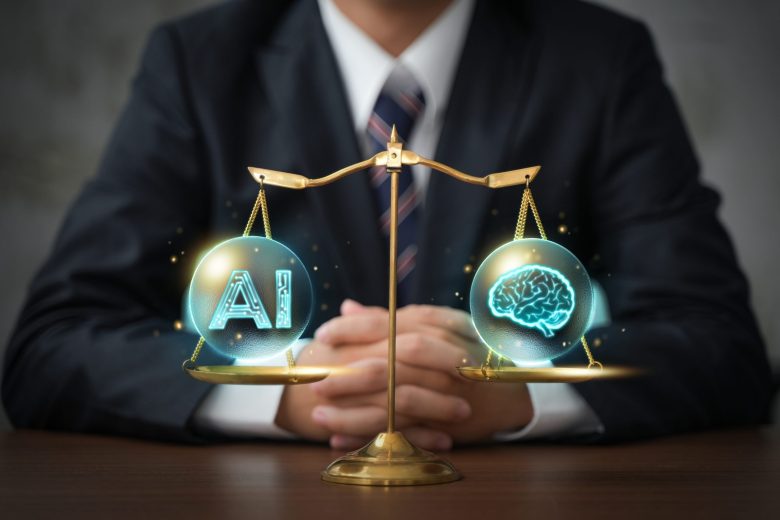Artificial intelligence is revolutionising industries, streamlining business operations and changing the way we work and live. Behind its impressive capabilities are complex legal issues that require attention. These challenges, ranging from data privacy to intellectual property rights, are changing the legal landscape in response to AI’s rapid progress. This blog explores the key legal issues around AI and their broader implications for individuals, businesses, and legislators.
Data Privacy
Data privacy is brought into sharp focus by the enormous volumes of data AI systems need to function efficiently. Data privacy is a hot topic because personal data is collected, processed and analysed in unprecedented quantities. This raises questions about the storage and use of this data. Data privacy laws like the EU’s General Data Protection Regulation and the California Consumer Privacy Act were not specifically designed for an AI-driven society, but they impose stringent requirements on AI systems.
In order to comply with GDPR, organisations must get explicit consent from users before collecting and processing data. This can be a problem for AI developers who rely on datasets that come from different sources. In addition, there are questions regarding anonymisation since advanced AI techniques can sometimes reidentify anonymised data. In order to address such issues, it is necessary to balance innovation with the ethical responsibility of protecting user privacy.
Algorithmic Bias
Algorithmic bias can be a serious ethical and legal issue. AI may be perceived as being impartial, but its decisions are based on the data that it is trained on and those who developed it. Data that is biased or incomplete can have discriminatory results, which affect marginalised groups. It also poses legal risks to organisations.
The controversy over AI hiring systems which favoured male applicants over female candidates because the historical datasets that were used to train these systems were biased towards men, brought this issue to light. Now, governments and policymakers are examining how anti-discrimination legislation should be applied to AI. They also consider whether the laws need to be revised to take into account algorithmic decision-making. In order to eliminate algorithmic bias, it will be necessary not only for better data practices, but also for a robust legal structure that ensures compliance and accountability.
Intellectual Property
AI presents a unique set of intellectual property (IP), as well. Who owns a work produced by an AI system? Who owns the rights if an AI creates software, a novel or artwork?
The law struggles to provide definitive guidance on these scenarios. In most jurisdictions, only humans are recognised as IP owners. This means that works created solely by AI might not be eligible for protection. This ambiguity can create legal and commercial risks for businesses that rely heavily on AI-generated material.
Often, the ownership of final products is a concern for companies that use third-party AI to create creative works. Clarifying IP rights within the AI context is crucial for both fostering innovation and protecting creators. The debates surrounding IP and AI are still heated and contentious. This indicates that policymakers and technologists need to work together and create innovative solutions.
Liability and Accountability
The ability of AI to act autonomously brings up important questions regarding liability and accountability. Who is responsible if an AI system makes harmful decisions, such as misdiagnosing patients, causing financial losses, or causing physical harm? Who is responsible for AI decisions that are harmful? Is it the developer, the user, or the AI itself?
The traditional legal frameworks assign liability on the basis of human negligence or intention, but applying this principle to AI can be challenging. It is becoming more and more apparent that new regulations will be needed to properly assign liability, particularly for high-risk applications like autonomous vehicles or healthcare.
Often, strict liability models are proposed, similar to those in product liability laws, which place responsibility on operators or developers regardless of their intent. When AI involves deep learning systems, it is more difficult to determine fault. Even developers may not understand the exact outcome. The debate on AI liability will have a major impact on the regulation and adoption of these systems in the future.
Regulation and Compliance
Governments and regulatory agencies are scrambling to keep up with the rapid growth of AI technologies. Some sectors benefit from clear AI guidelines, while others remain in the grey area, with minimal oversight. Policymakers are urged to create tailored regulations for AI systems due to concerns about transparency, accountability and societal impact.
A debate is raging about the need for AI standards that are international to ensure that all jurisdictions have similar rules. Inconsistent regulations can hinder innovation and even lead to disputes between countries due to the complexity of global trade. Businesses leveraging AI must be aware of the evolving regulations in order to avoid penalties and ensure compliance.
Ethical Considerations
AI brings with it ethical issues that are interconnected to the law. Is it ethical for AI to be used in mass surveillance applications? How can we regulate AI that makes decisions that could be life or death, like autonomous weapons and healthcare triage?
Many organisations have now introduced AI ethics boards in order to monitor the possible societal impacts of AI usage. Legal frameworks are only a starting point. Ethics must also play a role in determining how AI will impact the world. Multidisciplinary collaboration is needed between tech professionals, legislators, and ethicists to address these ethical concerns.
Future of AI and Law
The relationship between AI, law and society will continue to grow in complexity. AI advances will continue to push current legal systems beyond their limits, creating scenarios that we’ve never imagined. The policymakers should adopt a proactive approach rather than a reactive one, anticipating legal and ethical issues that new AI technologies will bring.
It is important to strike a balance between innovation and robust safeguards. The law must not hinder AI’s ability to revolutionise industries, but it should ensure that any advancements are made in a way that respects human rights, justice, and equity. Legal experts and enterprises must collaborate to create a framework that will encourage ethical innovation in the future.
A Balanced Way Forward
AI offers exciting possibilities, but understanding its legal landscape is crucial to maximising its potential. We can build a world where AI is able to serve humanity without compromising innovation or justice by tackling issues like privacy, bias and regulation. Staying informed about these issues is essential for anyone working in the AI industry, whether they are a lawyer, business leader or tech developer.
FAQs
1. What is the greatest legal challenge AI poses?
Understanding liability and accountability is one of the most difficult things to do. It is important to determine who’s legally responsible if an AI system makes a mistake or causes harm.
2. How can businesses deal with AI-related IP concerns?
Keep up to date with the latest laws and clearly define ownership agreements. Define whether AI-generated material belongs to you or another entity.
3. Why is AI regulation important?
Regulations ensure that AI technologies are created and deployed in a safe, ethical, and responsible manner. Fair and effective regulations safeguard consumers and establish equal opportunities for businesses.
4. How can we ensure ethical AI usage?
Businesses can create ethics boards, prioritise the transparency of AI systems, and audit them for bias and compliance in order to ensure AI usage aligns with legal and social standards.




